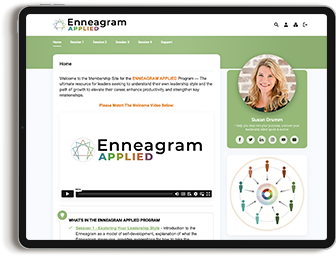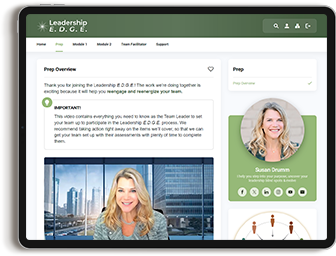Embracing sustainability & social justice for long-term success (feat. Andrew Behar)
But as leaders, it can be tough to make corporate decisions that align with those big issues because the shift in operations would create a disruption to business as usual. And then, shareholders might jump ship after the potential short-term loss of that disruption — or would they?
Andrew Behar has data that proves the opposite is usually true: shareholders care deeply about corporate commitment to big issues, and won’t abandon companies who sacrifice short-term profit to uphold those commitments. In fact, most major companies are rewarded by shareholders for these types of decisions.
Andrew is the CEO of As You Sow, the nation’s leading non-profit practitioner of shareholder advocacy and engagement. Since 1992, As You Sow has used shareholder power to align investments with values and compel companies to reduce their material risk on issues including climate change; toxins in the food system; ocean plastics; diversity, equity, and inclusion; racial justice; and wage equity.
He shares his research on how companies who model transparency and commit to addressing the issues enjoy better business outcomes and longevity.
How deep do your company values go?
One pattern Andrew has observed among leaders is that companies become fragmented in their application of their values, applying them in some areas of the company but not others.
For example, Amazon has embedded sustainable practices into their operations but failed to integrate sustainability into employee 401K plans. Employees may work for Amazon because they align with the sustainability value, but end up being invested in other companies, through the 401K plan, who are (ironically) burning down the literal Amazon rainforest.
As Andrew puts it, the single most important thing executives can do is make sustainability and values-based goals comprehensive throughout your company (not just in your supply chain and operations).
Why leaders should put their money where their mouth is
Andrew shares another common scenario for executives:
Upper management is reluctant to be transparent about how the company is currently performing on an issue, such as Diversity, Equity, and Inclusion, because they don’t want to reveal how poorly they are doing to their shareholders. So, they don’t discuss the issue.
But, according to Andrew, this is a mistake. The company should instead opt to disclose exactly where they are, along with a plan to get to where they want to be. The reason?
Investors don’t invest in a company based on where it is now — they invest based on its trajectory. So, being transparent about your starting point is actually a benefit for companies.
For example, Andrew describes a recent experience with the board of Kellogg. The company was initially reluctant to change their practice of spraying a toxic pesticide (and known carcinogen) on their wheat and oats due to a short-term loss that would ensue as customers found out and it became more expensive to produce those crops.
But through working with As You Sow, Kellogg was able to see the risk that as the public became more educated about the issue, it had the potential to destroy their company from a PR standpoint. By opting to make the decision now to end the use of the pesticide, Kellogg influenced others in the industry, including General Mills, Pepsi, and Campbell’s, to make a similar move and was featured in numerous positive media reports as being a leader in this movement.
Andrew also shares…
- The data that executives need to to collect to work toward more successful DEI initiatives
- Why decision-making at companies about sustainability will determine whether or not countries reach the Paris Agreement goals
- How thinking long-term is a strategy that shareholders appreciate, despite short-term losses
If you liked this episode, you’ll also enjoy my interview with Erica Ariel Fox, where she discusses the secrets to becoming a better negotiator.




